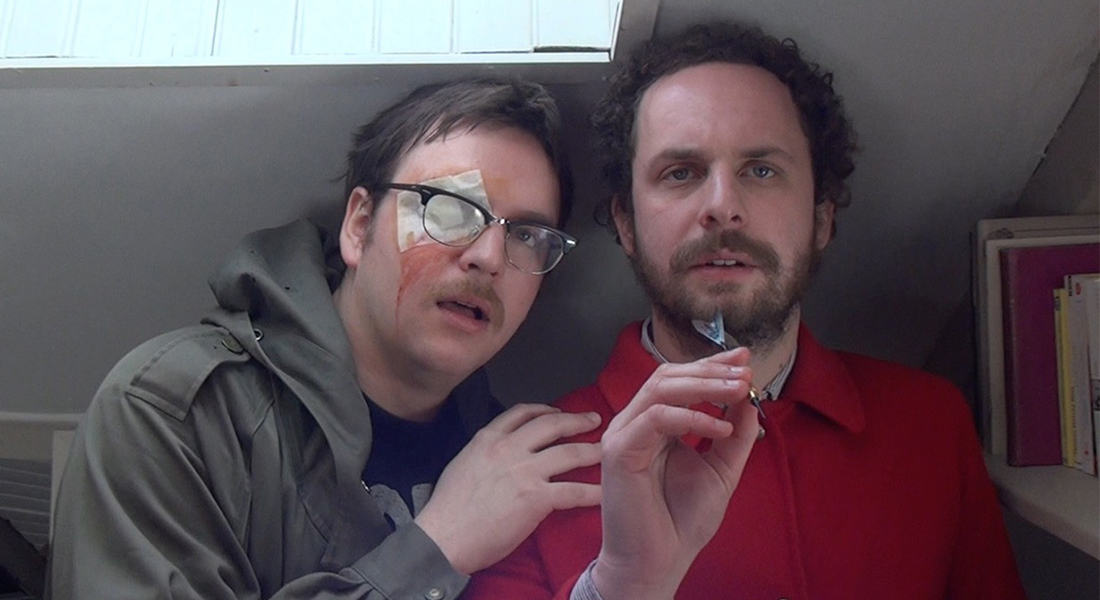Chloé Galibert-Laîné analyzes Chris Kennedy’s Watching the Detectives and the content produced after the Boston attacks. At the same time, Galibert-Laîné uses Structuralism, film editing and her academic language in her own investigation.
A film that illuminates the ways in which real investigations in virtual communities are carried out, such as on reddit or 4chan, exemplified by the events that followed the tragedy of the Boston Marathon in 2013, through the possibilities of crowdsourcing.
A movement from the intimate to the collective. The love story of Conceição and Orlando Senna, through almost 60 years, is interwoven with many stories of Brazilian cinema and, in a broader sense, with the history of Latin American audiovisual.
”
The premiere of Makavejev’s W.R. – Misterije organizma (1971) – that we’ll be able to see in the programme “50th anniversary of the Berlinale Forum” – stirred a big debate in the Yugoslavian society of that time. The association between sex and communism was seen as offensive. Radovanović’s film portraits that debate, with access to clandestine recordings of it, and is also a story about late socialism in the country with its reduced artistic freedom.
“
”
It was still in Chile that Ruiz started to direct this unconditional love story with ghosts. In 1973, the military coup forced him to exile and he left unfinished what would be his first feature. Years later, film reels appeared of what was shot. Valeria Sarmiento, his widow, with the help of specialists in reading the actors’ lips, was able to reconstruct the dialogue and finish this film about a man to whom the ghost of his deceased wife appears.
“
At the beginning of the 70’s, René Viénet, situationist and filmmaker, bought the rights of a Chinese kung fu film and, by adding subtitles and later sound dubbing, transformed it into an hilarious burlesque avant garde comedy. It was the technique of “detournement”, that reformulated and recontextualised works of art for other means. And so, a martial arts film was now containing situationism aphorisms and fights opposing proletarians and bureaucrats.
This film is not in English and does not have subtitles in English.
Censorship in cinema aimed at producing cuts or an opacity in the images of certain films, due to political and moral reasons. Accessing letters from censors of the French cinema of the 1950’s, 1960s and 1970s, one imagines what might be an “aesthetic of censorship.”
Ariel de Bigault’s work has been connected to the routes of the Lusophone World. In Fantasmas do Império we are guided by the saotomean actor Angelo Torres through some works of the Portuguese cinema that explored its colonial past. Some directors as Fernando Matos Silva, João Botelho or Margarida Cardoso help to understand imperialism, colonialism, and propaganda seen through the “family album” which is the Portuguese cinematic collective imaginary.
Today, Iranian cinema is associated with poetry and humanism. But it wasn’t always like that. Ehsan Khoshbakht, co-director of Il Cinema Ritrovato festival, reaches for his VHS private collection and also some reels of films that survived censorship, to create a journey through filmfarsi. This is the term that designates the popular cinema before the 1979 revolution, where tearful musicals, violence, sex and comedy dominated film screens.
Rappaport’s new fictional autobiography (The Double Life of Paul Henreid; Chris Olsen – The Boy Who Cried, IndieLisboa 2018) is about the German actor Conrad Veidt. When we think of Veidt, the first image that comes to mind is of the somnambulist Cesare, in Das Cabinet des Dr. Caligari (1920). However, Veidt had a career until the end of silent film and in the talkies he tried to free himself from the stereotype of the German villain.
Film was Samuel Beckett’s only work for cinema. In it, he wanted to have exterior images of a street, a street he would describe as an “absolute street”. Jan Ijäs shows us the search, in the summer of 1964 in New York, for this “perfect street”.
Sometimes cinephilia is finding someone we didn’t expect, while watching a film before sleep. In this case, it was the actress Anna Sten, star of Russian silent film, that appears before Rappaport’s eyes, years later, in a 50’s film by Edward Dmytryk.
The avant-garde filmmaker Dziga Vertov was also an untiring promoter of the cause of women’s emancipation.
“L’espace commun” is a city built from cutted, distorted and superimposed images extracted from the collective imaginary of cinema.
In “Les résultats du féminisme”, there is a society in which gender roles are shifted. Will men stand to be unequal? Programmed together with “Be Natural – The Untold Story of Alice Guy-Blaché”.
A gentleman thief and a lady pickpocket join forces to con a beautiful perfume company owner. Romantic entanglements and jealousies confuse the scheme. A tribute screening to Hans Hurch, preceded by a video presentation of the film by the late critic and curator.
While two Parisian friends question their friendship and their lazy lifestyle in the capital city, in the countryside, a young composer puts the finishing touches to his opera. This is the myth of Orpheus revisited, and a pretext for win back his ex-fiancée, Adelia.
An investigation of three movie scenes, showing stunts that led to the deaths of the stunt doubles performing them.

















